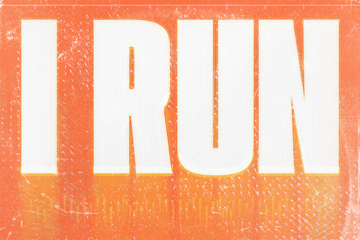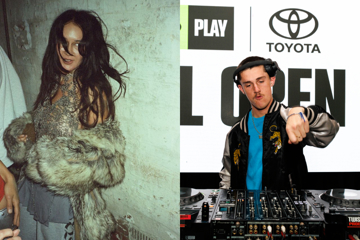Marvel Enters Its 'Psychedelic Side Project' Phase With The Trippy 'Doctor Strange'
The Sorcerer Supreme's origin story proves a delightfully light and visually stunning adventure.
DOCTOR STRANGE

In dark, disturbing corners of the internet, where men are boys and necks are bearded, there exists a stand-off as old as time itself: DC vs Marvel. Argued about with the passion and idiocy currently at play in the US presidential campaign, it’s less debate, more online rockfight. Like the Hatfields and McCoys before them, this is a rivalry stoked by proximity: these neighbours share fencelines and bloodlines; the comic-book world once such an enclave of culturally shunned geekery that arguing amongst themselves was like internecine conflict, some kind of, oh, well, um, Civil War?
Since the entire history of human civilisation was changed, in 2008, with the arrival of Iron Man —once we dwelled in the regular ol’ universe, now we are all citizens of the MCU— the old DC vs Marvel debate has gone mainstream, with even evil practitioners of the darkest art, film criticism!, supposed to take sides. For yr old pal Film Carew, who is suspicious of any movie that ends with two men in spandex costumes having a fist-fight whilst the fate of the world supposedly hangs in the balance, the idea seems revolting. Should the brand loyalty of fanboys really enter the critical discourse? Isn’t art the ultimate ideal to strive for? Can’t we all just get along?
Don't miss a beat with our FREE daily newsletter
And, then, 2016 happened. Marvel atoned for the horrible Avengers: Age Of Ultron —their one true misstep— with the excellent Captain America: Civil War, which both cleaned up the fall-out from its predecessor, and proved particularly adept at juggling the Studio’s ever-expanding cast of costume-clad IPs. In contrast, DC bet the farm on Zack Snyder, which, um, well, shit, did you see Batman V Superman: Dawn Of Justice? It was awful; big and loud and stupid, filled with non-stop destruction and a genuinely loathsome spirit. BvS seemed like the nadir of superhero-team-up movies, only to be trumped, mere months later, by the embarrassing, adolescent-bro-down Suicide Squad, which may be the year’s very worst film. It’s impossible to have a rivalry in the face of results so one-sided; this debate is something that should’ve been called long ago, if only to save us from the sublime idiocy of outraged DC-fanboy change.org petitions.
Which is all a long preamble to say: Doctor Strange is really good. With its juggernaut franchises crushing all comers, Marvel is now operating like a record label: using the financial success of its cash-cows to bankroll smaller, weirder, funnier, more satirical riffs on the super-hero. To take an analogy to its logical conclusion: Doctor Strange is the label’s psychedelic project.
The original comic caught on in the Age of Aquarius due to its affinity with the growing counter-culture, its hero’s adventures in black magic, Eastern mysticism, and the space-time continuum all playing like a particularly groovy acid trip. And, sure enough, Scott Derrickson’s to-screen translation immediately drops the audience into the psychedelic: ponytailed Mads Mikkelson —his scorched Kiss make-up making his villain’s face appear forever tear-streaked— and gender-queer bald monk Tilda Swinton engaging in a wild fight that involves not just whips, shields, and portals fashioned from fiery mystic energy, but the whole world turning dream-sequence pirouettes. Buildings bend and fold in on themselves in Escher-on-acid mania, like we’re watching Inception through a kaleidoscope; Doctor Strange finding a way to turn the pixel-moving of the modern CGI blockbuster into something artful, worlds constructed and deconstructed in vivid, mind-stirring ways.
That cold open gives a warming halo effect to the more generic work of origin-story-telling that marks the first act. Benedict Cumberbatch is a wealthy, egotistical, obnoxious neurosurgeon whose life falls apart when his nimble fingers are crushed in a car accident. Obsessed with regaining his dexterity, he seems like rote tortured genius; his torture mostly involving being a dick to Rachel McAdams, who, as ever, slyly radiates a mixture of sweet humanity and movie-star charisma (when she screams at a mop falling over, it feels like love). Things change when the Cumberbitch ends up in a mystical monastic compound in the mountains of Kathmandu, where he encounters a coterie of English fighting monks —Swinton, Chiwetel Ejiofor, Benedict Wong— who offer him entry-level Eastern-ish maxims about relinquishing control, the ego, etc.
Soon enough, Cumberbatch and co are cavorting through space, time, neon-lit interdimensional trip-outs, spinning mandalas, and parallel alternate realities. There’s a place called the dark dimension, a mirror world that isn’t from The Mighty Boosh, and all kinds of expository mystical mumbo-jumbo that, tbh, you don’t actually really have to bother to pay attention to.
The success of Doctor Strange doesn’t involve you ‘buying into’ the mythology being peddled, because, in truth, the screenplay —by Derrickson and C. Robert Cargill— keeps its smirking distance. Every evocation of black magic, cosmic energies, and other realms comes with a side-order of snarky blowback; first Cumberbatch doubting the vision of reality that Swinton is selling, then McAdams mocking him for joining a cult. There’s a genuine levity, and humour, at play throughout; a wry quality that knows audiences are over-taxed on the high-fantasy tone of most popcorn blockbusters, that knows the last thing we need, here, is some cod-Tolkien-ist reverence for an imaginary vocabulary of wonky-sounding names (Mordo! Dormammu! Kaecilius!).
Derrickson even dares make jokes when the stakes are high: when near-death, Cumberbatch goes comically outer-body, like in some zany ghost-themed rom-com; his fights with Mikkelsen are filled with ongoing gags of confusion and a magic cape with a mind of its own; and even the final showdown with some all-powerful dark lord of multiple dimensions is, essentially, told as Edge Of Tomorrow¬-styled loop-time gag. Ultimately, Doctor Strange plays as light, but delightfully so: a fast, fun film that gives you a host of wild psychedelic visuals and a run of gags, and blessedly gets out in under two hours.







